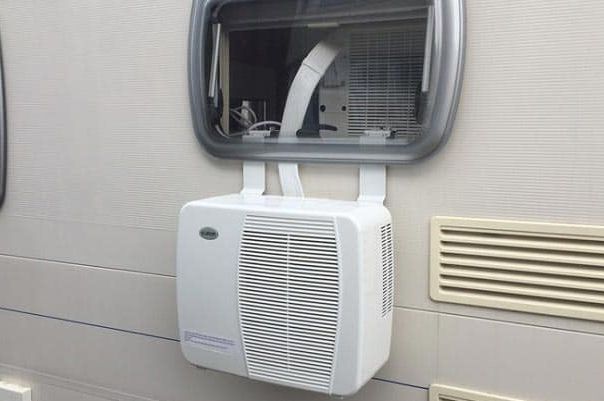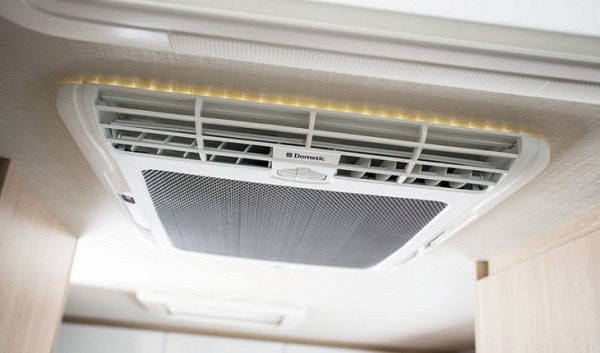RV Air Conditioner Won’t Turn On? Steps to Follow
When your RV’s air conditioner doesn’t turn on, it can be a problem. If you are traveling during a hot season or in a warm region, temperatures inside a vehicle can quickly climb to dangerous numbers.
 Source: thecampingadvisor.com
Source: thecampingadvisor.com
In high temperatures, the interior of a car can get as hot as 170 degrees. While your RV probably won’t get as hot as a small vehicle, it can still reach a high enough temperature to make you seriously ill.
Getting overheated can lead to many severe symptoms, especially for older adults. Driving in an overheated vehicle may lead to heat exhaustion. It can cause fatigue, nausea, dehydration, dizziness, fainting, cramps, headache, and low blood pressure.
For this reason, it is essential to address a broken RV air conditioner as quickly as possible. It is the best way to keep your vehicle cool and ensure that all the occupants stay safe on the road.
Possible causes for why your RV’s air conditioner won’t turn on
There are several reasons that your RV’s air conditioner might not be working.
That means that the unit is running at partial capacity, not cooling effectively. Signs of this may be a unit that is blowing hot or warm air. To find out if your air conditioner is low on power, check the control panel. AC units generally need a minimum of 120 volts to function.
Faulty wires are usually wires that have shorted a circuit. It usually happens during a power surge. Not only can damaged wires cause problems for your AC unit, but they can also become dangerous. They may be likely to catch on fire.
Loose connections are simply the result of long-time use. As time goes on, they may move or become loose, especially in a moving vehicle like an RV.
Stripped wires have had their coating ripped off and the interior wire exposed. It is a fire hazard and may cause electrocution, so be sure not to touch them.
A faulty compressor is a bit different. If your compressor is broken, you might notice noises coming from inside your unit or leaking around the outside. These are common signs of compressor problems and an indicator that you may need a replacement part.
You can do a few quick tests to compare the temperature of the air your unit is taking in and the temperature of the air it is putting out. That can give you a measure of how well your thermostat is working.
What is The General Life Expectancy of an RV’s Air Conditioner?
Your RV’s air conditioner’s life expectancy depends on how much you use it and how much you travel. In general, you can expect it to last between three and five years. However, this can be longer or shorter based on your usage and the type of model you have.
 Source: rvweb.net
Source: rvweb.net
Routine Maintenance for Your RV’s Air conditioner
Maintaining your RV’s air conditioner is the best way to extend its life. It is simple, and anyone can do it. Maintenance falls under a few categories: cleaning, maintaining filters, keeping ice from forming, and replacing parts.
Cleaning your air conditioner is straightforward. All you have to do is remove the outer shield and wipe down the inner components with soap and water. The same goes for your filters unless you use disposables.
Ice forming on your AC unit can also cause damage and wear. To keep this from happening, turn the fan on high when you notice it starting to freeze. There are a few reasons ice forms, many of which are self-correcting.
The last part of RV maintenance is merely inspecting your AC unit a few times a year. Check both inside and outside your vehicle to make sure there are no cracks, worn spots, or debris.
Bottom Line – Repair or Replace?
Many problems with AC units can be repaired by simple fixes or by replacing individual parts. But others indicate that it is time to replace the unit. Frequent issues with the air conditioner or exposed wires mean that replacing it is in your best interest, for both your comfort and your safety.

